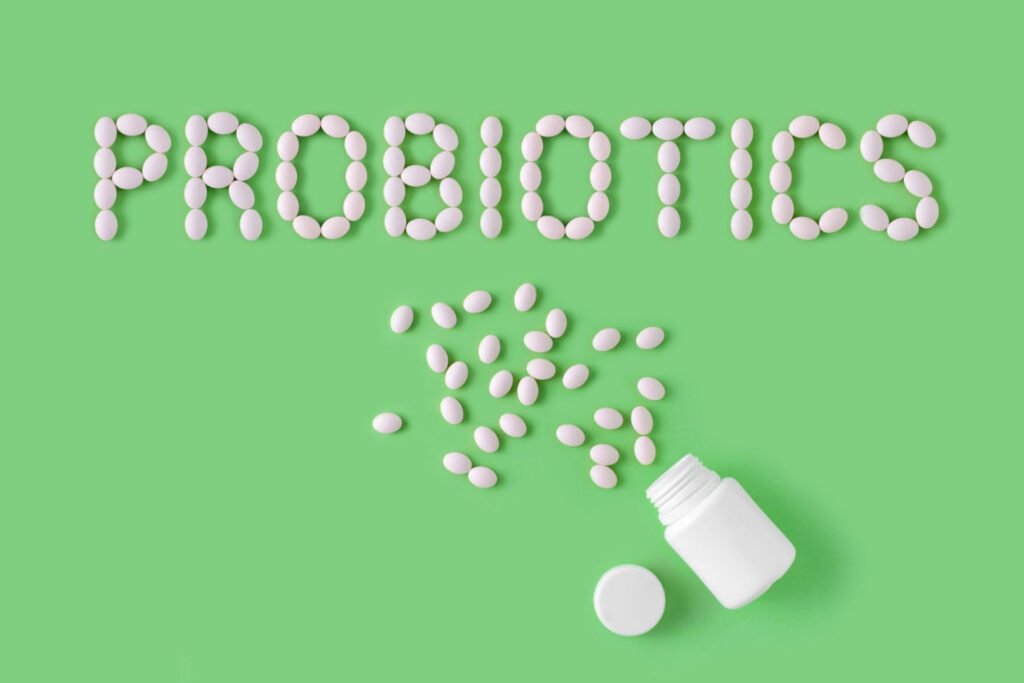
What Are Probiotics, Anyway?
Probiotics: What You Need to Know About Gut Health Supplements
When it comes to our wellness journey, we often find ourselves drawn to the latest health trends, and right now, probiotics are all the rage. Promoted as miracle workers for gut health, immune support, and digestive relief, these beneficial bacteria definitely have their fans. But how reliable are these claims? Are all probiotics the same? Let’s unpack the dual nature of probiotics, clear up some common confusion, and address important concerns, like antibiotic resistance.
What Are Probiotics, Anyway?
Probiotics are live microorganisms, often found in yogurt, supplements, and fermented foods. When consumed in sufficient amounts, they’re believed to offer a range of health benefits, mainly targeting gut health, immune system support, and even a potential impact on mental health through the gut-brain connection.
Here’s the catch: not all probiotics are created equal. Different strains provide different effects, and ongoing research is trying to pinpoint just how effective these little guys really are. Take E. coli Nissle, for instance—it’s often highlighted for its specific benefits, but the overall reliability of probiotic supplements is still up for debate.
The Promise of Probiotics: What They Can Do
1. Probiotic Potential vs. Limitations
Probiotics come with a host of health benefits. Studies show they can help diversify gut microbiota, which is essential for digestive health and overall well-being. They may boost our immune response, aid in managing gastrointestinal issues like IBS, and even influence mental health through gut-brain communication.
But here’s the real talk: we still need more rigorous research to back up many of these claims. Researchers at Stanford are pointing out that while probiotics can positively affect gut bacteria, their overall impact on health can vary widely from person to person.
Takeaway for You: When you’re thinking about trying probiotics, focus on strains that have solid clinical research backing them. Peek at the labels for strain identifiers because not every probiotic out there will deliver the promised benefits.
2. Consumer Confusion and Labeling Issues
One major headache for consumers is figuring out probiotic labels. Many products don’t clearly state the exact strains included or the amounts necessary to achieve health benefits. This lack of transparency can lead to confusion and misguided choices.
Maria Marco, a microbiologist at UC Davis, warns that not every “friendly microbe” meets the standards to be officially labeled as a probiotic. With such vague labeling, it’s easy to be misled, which can leave you empty-handed in your wellness journey.
Actionable Tip: Don’t just buy anything off the shelf. Look for products that:
– Clearly outline the strains
– Specify the colony-forming unit (CFU) count
– Refer to clinical studies backing their claims
3. Health Risks Linked to Antibiotic Resistance
Another important aspect to consider with probiotics is their potential connection to antibiotic resistance. Some probiotics carry antibiotic-resistant genes, which could be shared with harmful bacteria in the gut. This raises some significant red flags for public health, especially as antibiotic resistance continues to escalate worldwide.
Moreover, research points out that many probiotics don’t survive the rough ride through your digestive tract, which really puts their effectiveness into question. With the added risk of contributing to antibiotic resistance, it’s crucial to be cautious when considering probiotics.
Consumer Advice: Be careful when using probiotic supplements, especially if you have a history of antibiotic use. Always chat with a healthcare professional before diving into probiotics, particularly if you’re looking out for children or those with weakened immune systems.
How to Apply This Information
Ready to make informed decisions about probiotics? Here are some steps to consider:
1. Do Your Homework: Research well-studied strains that have proven effective for your specific health needs. Not all strains work for every issue.
2. Talk to Healthcare Providers: Before starting any new supplement, especially if you’re on medication or have existing health problems, it’s a good idea to consult with a healthcare professional.
3. Keep an Eye on Your Health: Pay attention to how your body responds after adding probiotics to your routine, and be ready to adjust based on your experiences.
4. Stay Updated: Keep on top of the latest research about probiotics and gut health. Consider subscribing to health journals or following reputable health websites for the latest insights.
Conclusion
Probiotics offer an intriguing glimpse into the realm of gut health, with a range of benefits and significant challenges in terms of effectiveness and safety. By staying informed, making thoughtful product choices, and keeping the lines of communication open with healthcare professionals, you can navigate the complex world of probiotics with confidence. Just remember, while these tiny microbes have plenty of potential, there are also risks to keep in mind.
What are your thoughts on probiotics? Did you find this information helpful? I’d love to hear your experiences in the comments! Exploring gut health is a journey we’re all on together, and your insights could make a big difference for someone else. If you’re curious about other health trends or supplements, be sure to check out our related articles for more great insights.
Written by Alexander Babinets
Founder of Express Fitness, certified coach, and author helping people get in shape without excuses.
📍 expressfitness.ca | 📩 info@expressfitness.ca
👤 More about me → alexanderbabinets.com
Hashtags: #probiotics #health #antibiotic #benefits #strains #research #probiotic #about #supplements #when #these #their #resistance #what #immune
